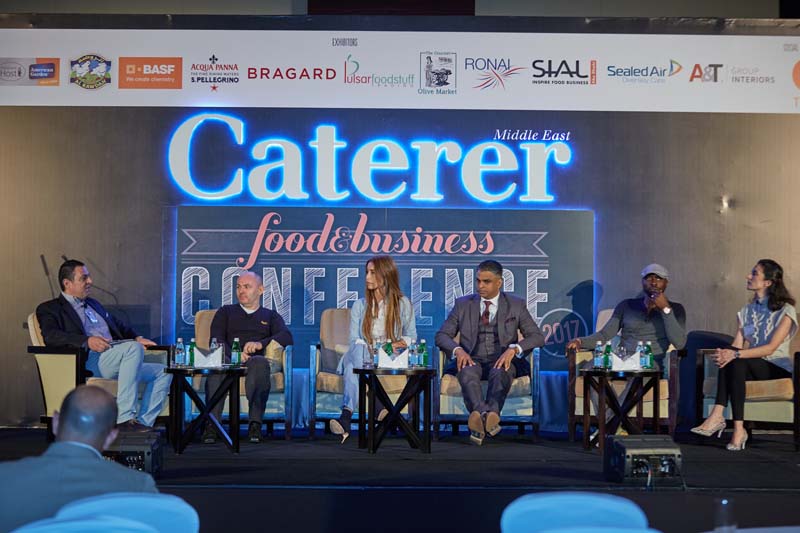 Eating healthy in the UAE can cost, the "Trending Healthy" panel discussion revealed during the recent 2017 Caterer Food & Business Conference.
Eating healthy in the UAE can cost, the "Trending Healthy" panel discussion revealed during the recent 2017 Caterer Food & Business Conference.
Eating healthy in the UAE still carries a premium price point, driven by scarcity of sources, supply chain challenges, food cost issues and lack of proper education about healthy food choices.
Finding healthy ingredients in the UAE is “possible” but “with an effort”, requiring “more research, more hard work” in “finding the right suppliers”, it was claimed during a panel discussion on “Trending Healthy” at the 2017 Caterer Food & Business Conference, held on March 7, 2017 at the Grosvenor House, Dubai.
Panellists agreed that the ongoing healthy eating movement can no longer be regarded as a trend but is now a lifestyle choice. “It is here to stay,” declared Naim Maadad, Gates Hospitality CEO, who also moderated the panel discussion.
The panel, however, agreed that though proper education about healthy food choices is key, insufficient education is leading to knowledge gaps existing in the marketplace, especially at the grassroots level, with consumer families and even schools making ill-advised food consumption decisions and clinging to indicators such as calorie counting to guide their food choice purchases.
the health co. general manager Shyra Fanri mentioned that her company had initially removed calorie counts from food packaging but was forced to print calorie values again, due to overwhelming customer feedback.
Izu Ani, YSeventy7 founder, decried the use of indicators such as calories when offering healthy food. He said: “The key to education is to do it in simple ways. Keep it simple – and make sure the food is really good.”
Marta’s Kitchen and Workshop founder Marta Yanci stressed the importance of learning from customers and providing their various health food requirements, such as the emerging demand for Paleo, lactose-free and gluten-free diets. “It’s ‘adapt or die’”, she said. But she also cautioned against overreacting to the latest food trends. “We tend to demonise everything or think it is the best in the world. I think balance is of the essence.”
Maadad agreed and added: “We need several support systems in place to make healthy eating a way of life – whether it’s from the source, the supplies, logistics, or the authorities.”
The Croft chef patron Darren Velvick said that finding the right balance between offering comfort food and healthy food is “tricky”, and that “everyone in F&B should have a role in educating the customer. Chefs, definitely.” He added that the challenge in providing healthy food could sometimes lie with purchasing, stating: “They’re not necessarily looking for the best but the cheapest and not the healthiest.”
Agreeing that procurement at hotels pose a complex challenge with ever-present downward pressure on food costs, Kempinski Hotel Ajman executive assistant manager Anish Kuttan said: “When you say something is organic, this usually comes with a price tag. Are the guests willing to pay for this? When you put that in the context of a menu price, it becomes a bit complicated.”
He opined that creativity could be a solution, citing as examples of how menus can be changed a few times a year to accommodate the availability of seasonal ingredients or how, at his hotel, a healthy menu is offered in collaboration with the hotel spa’s Ayurvedic offering, highlighting wholistic healthy benefits. He said: “It’s about how you package your offerings and the information you provide to the guests because awareness about healthy options always helps.”
When asked by an audience member, however, if eating healthy means that the customer has to shoulder a premium price tag, the panel conceded the "painful truth" that price gaps currently exist in the marketplace between regular food options and the healthy, organic, chemical-free, preservative-free choices.
“If you want your chicken to taste like chicken, then I’m sorry. In the UAE, that costs money,” Yanci declared.

| Advertisement |








 Search our database of more than 2,700 industry companies
Search our database of more than 2,700 industry companies









